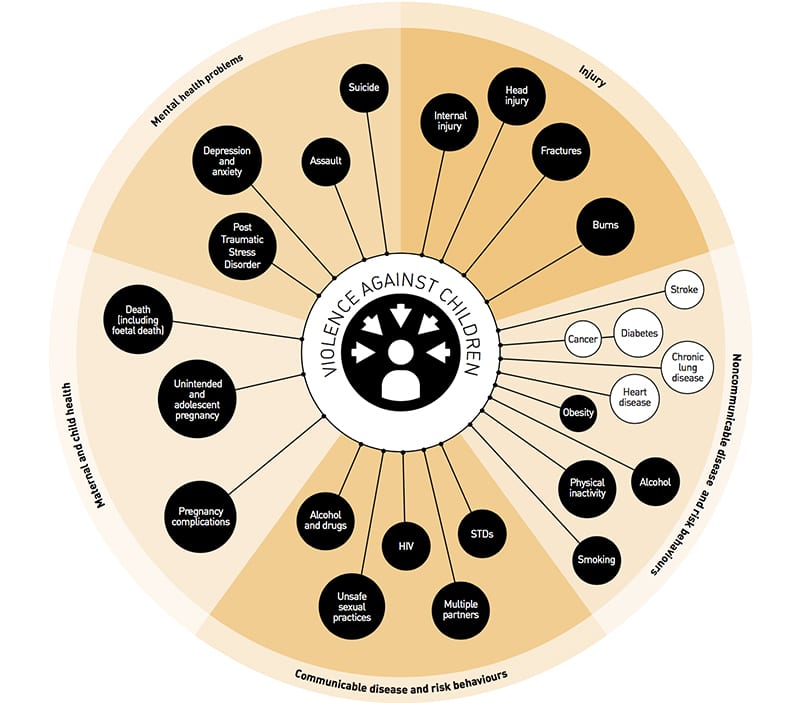The World Health Organization has released a new report: “INSPIRE: Seven strategies for Ending Violence Against Children”
Globally, hundreds of millions of children — up to one billion — have experienced physical, sexual or psychological violence in the past year.
The new WHO report “INSPIRE: seven strategies for ending violence against children” identifies a select set of strategies that have shown success in reducing violence against children.
These strategies are:
- Implementation and enforcement of laws;
- Norms and values;
- Safe environments;
- Parent and caregiver support;
- Income and economic strengthening;
- Response and support services; and
- Education and life skills.
INSPIRE is WHO’s main contribution to the newly established Global Partnership to End Violence.
The INSPIRE Vision
INSPIRE’s vision is a world where all governments, with the strong participation of civil society and communities, routinely implement and monitor interventions to prevent and respond to violence against all children and adolescents, and help them reach their full potential.
Alcohol a major risk factor, alcohol policy a crucial part of prevention strategy
In the report, WHO provides a package of strategies for preventing and responding to violence against children aged 0–18 years. Alcohol policy measures are a corner stone of the first strategy of “Implementation and enforcement of laws”.
This report shows that alcohol policy interventions are an important to tool for helping to end violence against children.
—
For download
Download the full report here (PDF)
Download the Executive Summary here (PDF)
